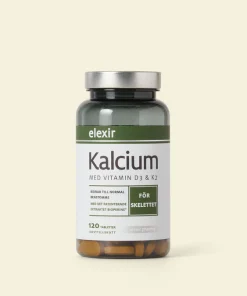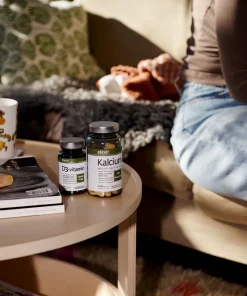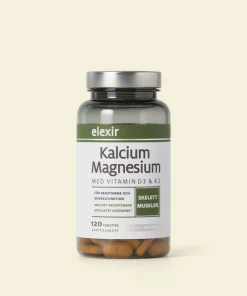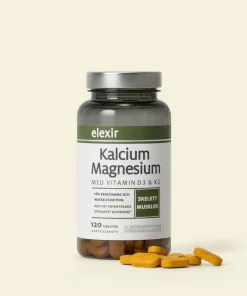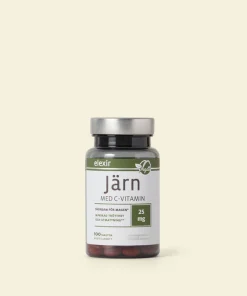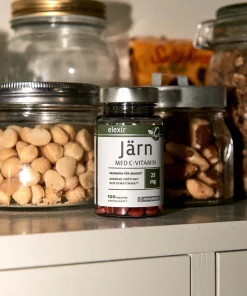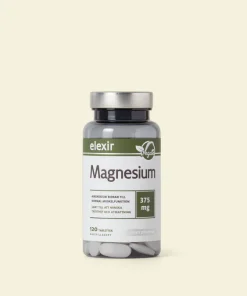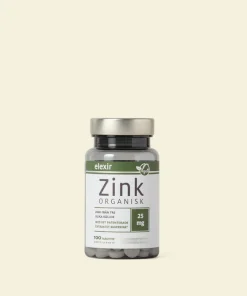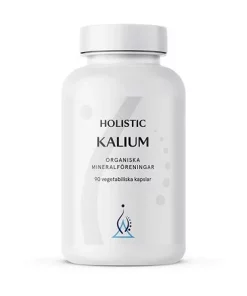Minerals
The 5 most important minerals
Scientist and two-time Nobel laureate Linus Pauling said in his lifetime that you can trace all health problems, ailments and diseases to mineral deficiencies. Whether this is a fact we leave unsaid, but we can at least agree that minerals are an important component for our health.
Stress, for example, deprives the body of magnesium. Iron deficiency can make you lethargic and compromise your immunity. And too little calcium can mean a risk of osteoporosis.
So which minerals are most important for you to get, and how do you get them?
Here are 5 of the most essential minerals :
Iron
Iron is needed to transport oxygen in the body and contributes to the normal formation of red blood cells and hemoglobin. Without enough iron in the body, you can feel tired and listless, have difficulty concentrating, a weakened immune system and in some cases dizziness and/or headaches.
On your plate: Oysters, beef, chicken and nutritious grains.
Dietary supplements: Iron
For increased iron absorption: vitamin C
Potassium
Potassium helps regulate blood pressure while contributing to the normal functioning of the nervous system. It is also needed for regulating the acid-base balance in the body. Potassium is mainly found in fruits and vegetables.
On your plate: Bananas, avocado, baked potato, raisins, tomatoes and artichokes.
Dietary supplements: Potassium
For increased potassium absorption: Magnesium
Calcium
Calcium plays an important role in our health as it is needed, among other things, to maintain normal teeth as well as normal bone structure and muscle function. For children and young people who are growing, it is especially important that they get enough calcium because during this time they store a lot of calcium in their bones. Adequate calcium can also help prevent PMS in women.
On your plate: Dairy products, spinach, kale, broccoli and beans.
Dietary supplements: Calcium
For increased calcium absorption: Magnesium, vitamin D and vitamin C.
Magnesium
Magnesium is involved in over 300 chemical reactions in the body. It affects the energy level in the body and therefore contributes to reducing fatigue and exhaustion. Magnesium also helps to maintain a normal bone structure and normal muscle function and contributes to the electrolyte balance.
On your plate: Spinach, Brussels sprouts, beans, wheat bran, brown rice, fish and meat.
Dietary supplements: Magnesium
For increased magnesium absorption: B vitamin
Zinc
Zinc is one of the minerals that has the most beneficial effects in the body. It contributes, among other things, to a normal metabolism of macronutrients, to a normal acid-base balance and to normal fertility and reproduction. Zinc also plays an important role in maintaining a strong immune system. Zinc occurs naturally in, among other things, meat, nuts, seeds, beans, cereals and in milk products. Vegetarians and people who train hard can be at risk of zinc deficiency and can therefore benefit from supplementing their diet with a zinc supplement.
On your plate: Oysters, crab, wheat germ, beans, lentils and chia seeds.
Dietary supplements: Zinc
For increased zinc absorption: Protein
Muscles, Joints & Bones
Elexir Calcium + vitamin D3 & K2 120 Tablets – Made in Sweden
Muscles, Joints & Bones
 StartNatural15
StartNatural15 – Up to 30 % Off!
– Up to 30 % Off! &Certified
&Certified and the best cheap & fast deliveries
and the best cheap & fast deliveries 
 & points on all purchases*
& points on all purchases* 


